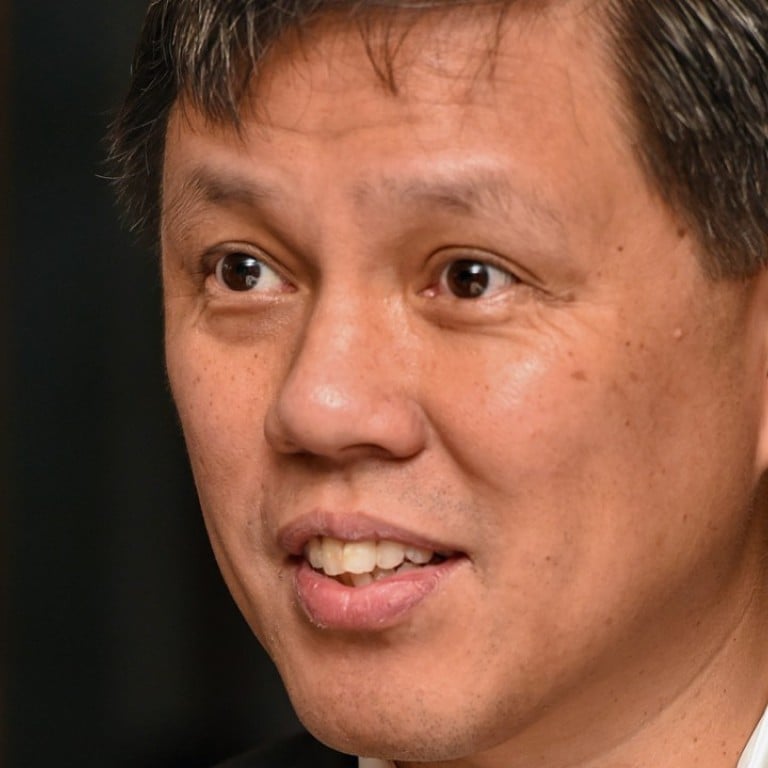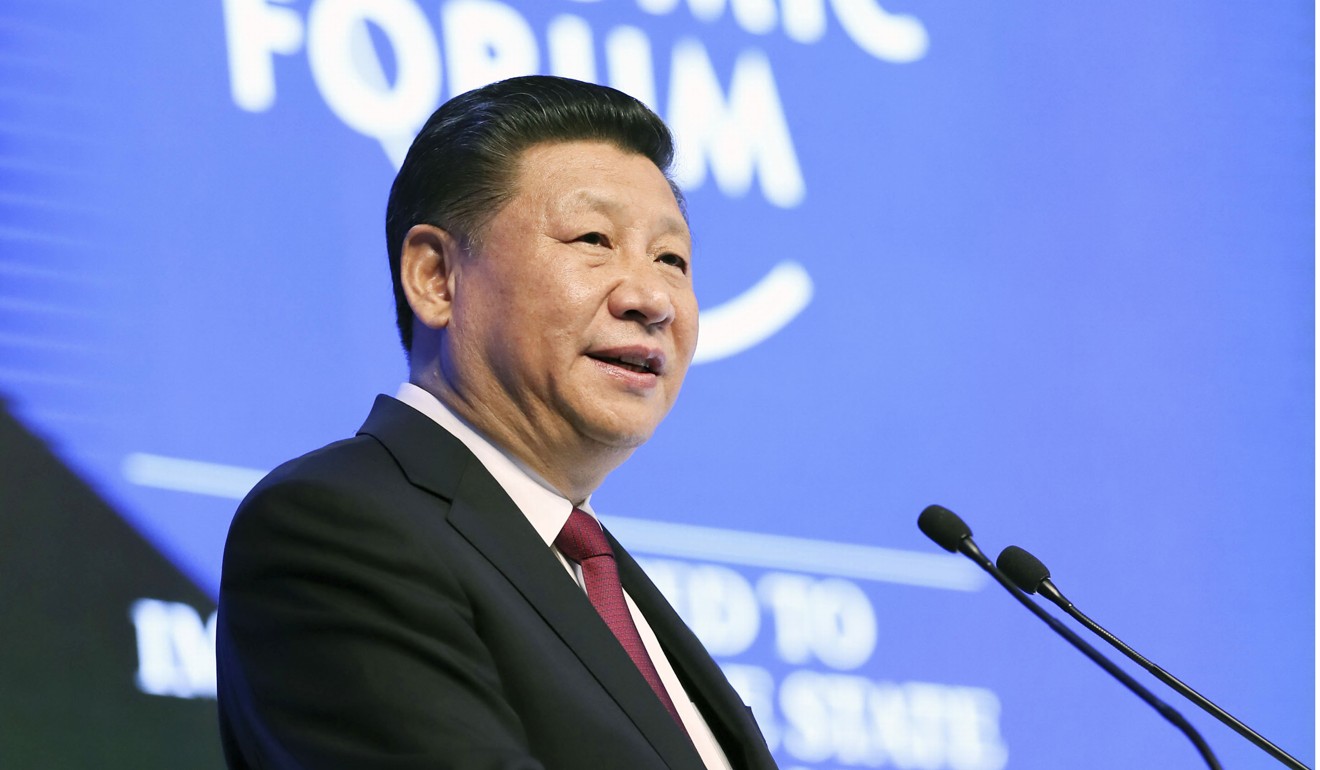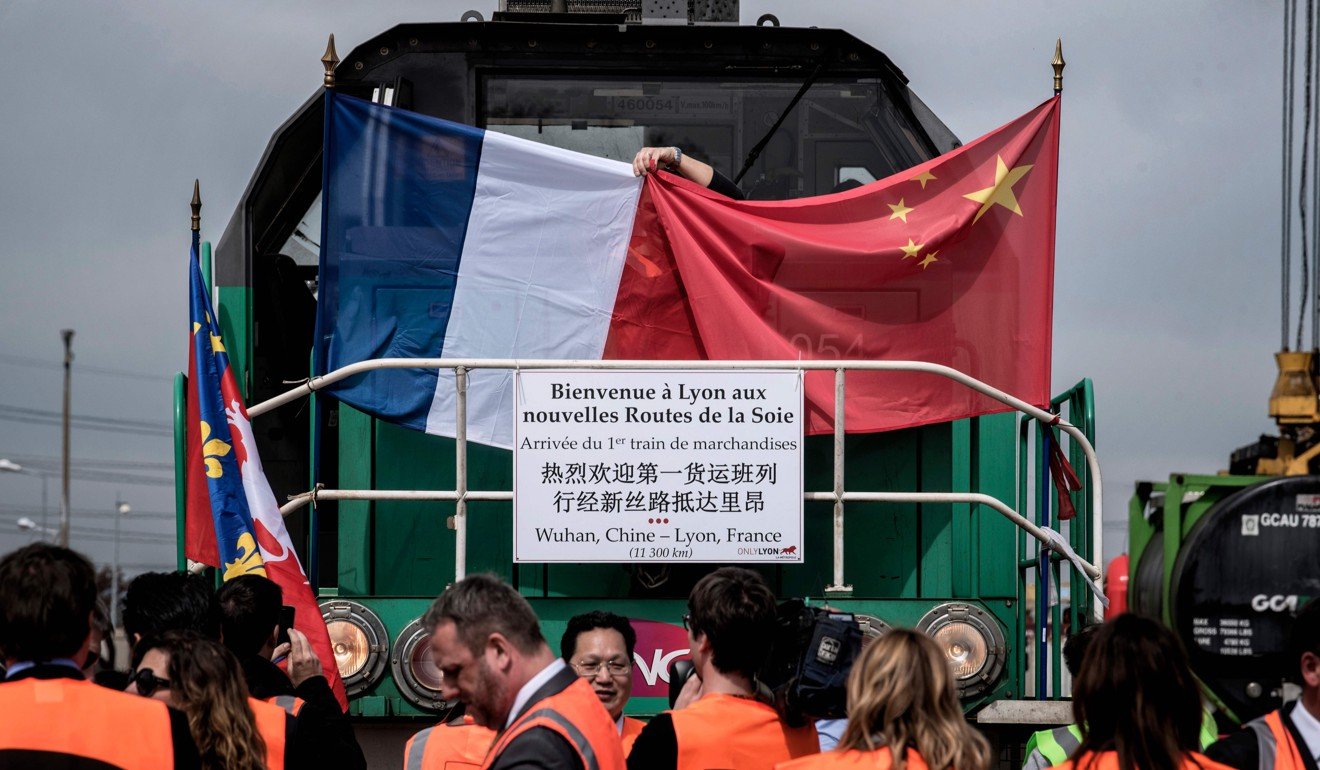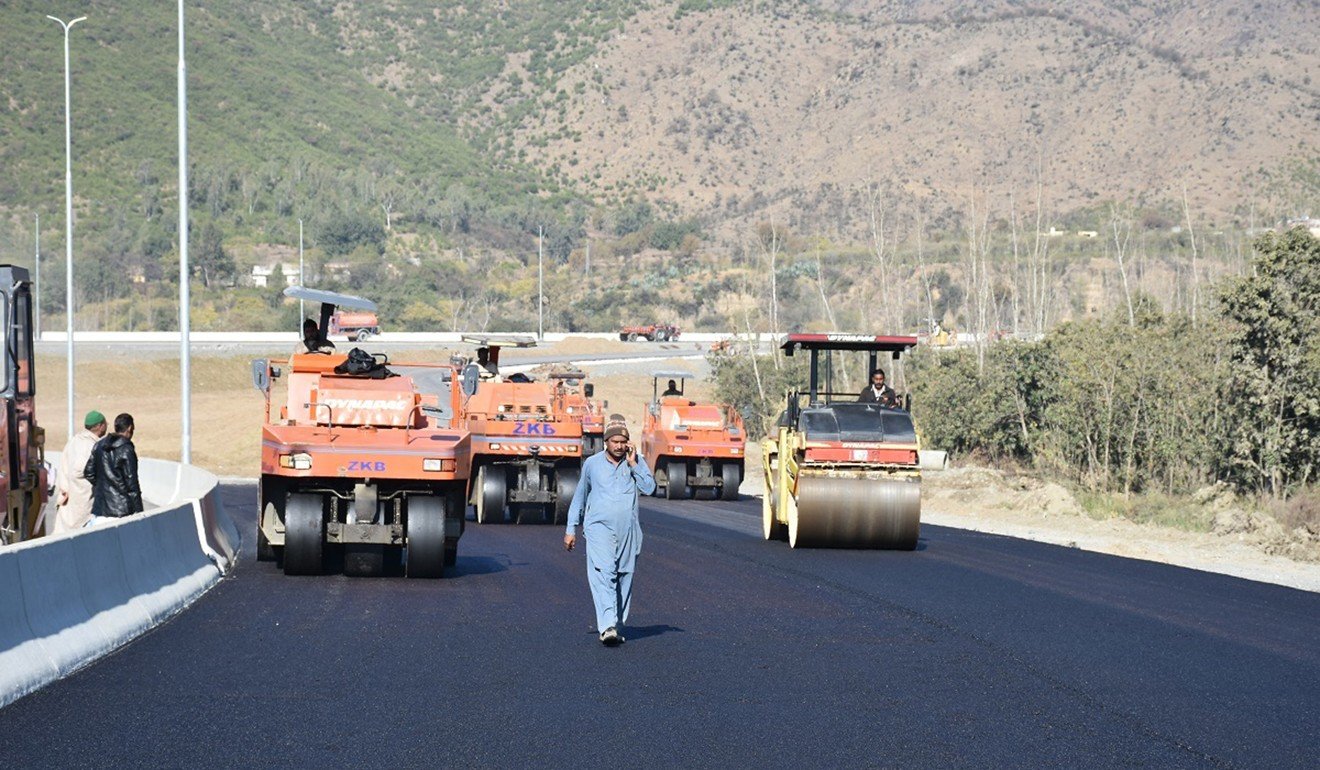
China’s Belt and Road can win world’s trust, Singapore minister tells Davos
Chan Chun Sing, one of three contenders to be the next prime minister of the Lion City, urges Beijing to show its ‘benevolence’
China can allay fears about its rapid economic rise by using its new-found clout in a benevolent manner, a Singaporean minister has said, touting the New Silk Road project as a potential catalyst for the “next phase of growth in the global economy”.
“I can understand and I have heard theories where people are afraid, hesitant about China’s growth,” Chan said at a session on the Belt and Road Initiative at the World Economic Forum in Davos on Wednesday.
“But this is an important historical opportunity for China to convince the rest of the world that actually its actions have a broader perspective,” Chan said.

Beyond just commercial viability and spurring economic activity in the participant countries, the initiative can be a network that “allows the world to participate in the next phase of growth in the world economy”, said Chan, who holds the portfolio of minister in the prime minister’s office.
“If China is able to use its power and capacity to catalyse this, it will win the trust and confidence of the world.
“The Chinese have a saying: yi de fu ren – use your benevolence to bring about a global community,” the former army chief said, citing a phrase used by President Xi Jinping in his Davos showing last year.
The Lion City meanwhile is keen on transferring its “software” – or technical know-how – in the financial and legal sectors to help boost the New Silk Road initiative, the minister said.
The city state – which has more than Sg$2.7 trillion (HK$16 trillion) of wealth under management – has emerged as one of the key financial hubs for the infrastructure project.
Watch: Xi Jinping’s right-hand man says China’s economy will continue to open up
Chan said: “They [Chinese officials] always remind us of this number: 3385, which means 33 per cent of all the outbound investment under the BRI initiative comes through Singapore, and 85 per cent of all the inbound investment to China comes from Singapore.”
Ignore the show for Lee Hsien Loong, Singapore and China are still at odds
“The reason we are able to do this is because we are a financial hub and we are able to syndicate the loans together,” he said. “The role that we play will include how we can best help to syndicate the loans, how we provide the legal and financial support – the software aspect.”
The creation of a “global commons” as a result of the New Silk Road will reduce the chance of conflict among countries, Chan said. “The more the countries connect with each other, the more interdependencies that we create, the smaller the chances of conflict.”

Chan, 48, is viewed by political observers as among three ministers likely to take over from Prime Minister Lee Hsien Loong, who has said he will step down soon after the next general elections due in 2021.
The other two are finance minister Heng Swee Keat and education minister Ong Ye Kung.
Chan’s ebullient comments on the Belt and Road Initiative follow similar optimism displayed by other cabinet colleagues in recent months.
Who will be the next prime minister is talk of the town in Singapore
The city state’s place in the initiative – involving Beijing-backed investments in roads, ports and railways – had initially been put in doubt because Lee was absent at an inaugural summit of participant countries in Beijing last May.
But the relationship has since thawed, with Lee visiting Beijing last September and Premier Li Keqiang expected to visit the Lion City some time this year.

Singapore-based economist Song Seng Wun said the city state was likely to be an important “behind the scenes” player in the New Silk Road project.
While it will not be a recipient of infrastructure investment like neighbours Malaysia and Thailand – where multibillion-dollar, China-backed port and rail projects are underway – the city state will be the place where deals are made.
“Banking and legal documents will be signed in Singapore … people trust things that are signed and executed here because of the strong rule of law,” said Song from the private banking unit of CIMB. “If there are any quarrels, then arbitration can be done in Singapore’s international arbitration centre.”

